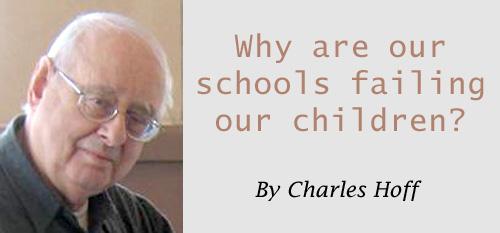Creating learning communities
Fri, 12/04/2009
Attending our local school board meetings and at the State Director’s meeting I keep running into the same plan for increasing student achievement.
This is the first priority of the School Director’s organization, presumably force fed to them by the educators as the School Director’s organization is much like the PTA whose connection to the teacher’s union is pretty well documented.
They are all talking about “Professional Learning Communities” as a way to increase “Student Achievement.” I believe that they believe that teachers, meeting with teachers, and discussing “What Works” will get out of the hole were are in when it comes to “Student Achievement.”
In these discussions we can talk about “Learning Styles” and other “Accommodations” teachers can make to increase “Student Achievement.” Much has been written, by educators, about the concept of “Learning Styles.”
However, in the real world there doesn’t seem to be any accommodation for learning styles. But then some have suggested that the “Real World” doesn’t have much relevance upon what happens in classrooms.
There is an elephant in the room we call student achievement! I think everyone knows it, but they are holding their noses and closing their eyes. What is the name of this “Elephant?” “Student Motivation to Learn!”
Many students have figured out that learning is hard work and that not doing this hard work doesn’t seem to alter their lifestyle. I would suggest this is a major cause of the decline in student achievement in the past 50 years.
No one in their lives has made it clear that “Learning is Not an Option” in ways that are meaningful to the student.
In fact educators, families, and societies have been providing more, and more, distractions to youth. When we hear from youth, “There isn’t anything to do” they don’t mention improving their achievement levels in this discussion. In fact when asked “What they dislike most about school?” they usually mention homework.
When did it become a requirement that students like school? When did parents highest priority about school become that they were “Satisfied” with school? I remember being very “dissatisfied” with several teachers while taking their courses.
It turned out that the material they insisted I learn was very helpful in life. My Algebra II teacher was a former Army Drill Sergeant whose classroom manner did not vary from that of the drill field and every student knew it. I have remembered most of what was presented in that classroom.
Did we like “Wild Bill?” No, we didn’t, but we understood that failure was not an option. We were “Satisfied” with our Algebra II instruction? Not at the time we were in the class. Did it turn out to be very helpful in college? It sure did! Did he give an assignment for over Christmas holidays that I can remember 53 years later? Yes!
Would I have been in trouble at home if I did not complete this assignment? Don’t ask!
Will “Professional Learning Communities” tame this elephant? No, but they will be another costly venture that will divert our attention from the real problem. Education publications are full of advertisements to “sell” packages that promise “Professional Learning” competencies.
The largest part of our problem with “Student Achievement” is that we have “Empowered” students to the point where they are consistently making bad decisions as there doesn’t seem to be any consequence for this.
Parents will “Cover” for them and intercede to be sure that their students remain “Satisfied.” Permissive behavior is tolerated in both the school house and the community. School Directors don’t want to insist that what students do is not necessarily going to be “Satisfying.”
Is it bad teachers that are causing this problem? I don’t think that this is a principal cause. It is students who believe that the work of teachers isn’t that important, and are reinforced in this belief by parents and other members of the community.
We have come to call this “Cultural.” This “Culture” doesn’t seem to be tolerated in the nations that have passed us in education. Why do we tolerate this? We have “Empowered” our youth, and the decisions that they are making our not helping them or society. It has been stated by the Governor’s Commission on Learning; “This generation will be less educated than their parents.”
This begs the question, “Is education important?” If it is, then we need to be sure that all involved in the effort treat it that way. If it isn’t that important, I would suggest that there are some great tax savings to be made here.


